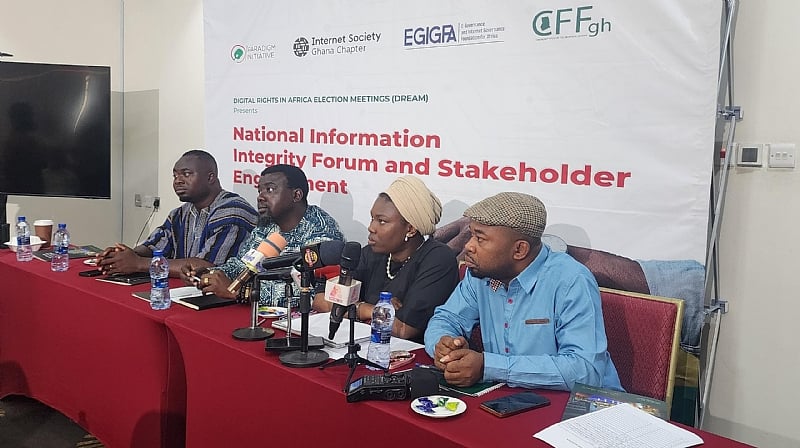As Ghana approaches its 2024 general elections, a critical forum has taken place to navigate the intersection of digital rights and electoral integrity. The Digital Rights and Elections in Africa Meetings (DREAM) convened in Accra, organized by Paradigm Initiative (PIN) in partnership with Community Focus Foundation Ghana (CFF-Ghana), E-Governance and Internet Governance Foundation for Africa (EGIGFA), and the Internet Society Ghana Chapter (ISOC Ghana). Dubbed the National Integrity Forum, the event engaged a diverse array of stakeholders, including civil society, government representatives, academia, media, political parties, and technology organizations. The focal point of this gathering was to address the rampant issues of misinformation and potential internet restrictions that pose a significant threat to transparent elections. Participants underscored the significance of responsible communication and reliable information access as crucial components of the electoral process.
Khadijah El-Usman, the Regional Lead for Anglophone Africa at Paradigm Initiative, vehemently articulated the necessity of upholding digital rights to enhance the credibility of elections. She emphasized that all stakeholders carry the responsibility to safeguard these rights to foster a democratic electoral environment. Moreover, Gbenga Sesan, the Executive Director of Paradigm Initiative, highlighted the urgency of providing timely and accurate information to combat misinformation. Sesan asserted that preventing the dissemination of false information is paramount for election transparency and called upon the Electoral Commission to proactively address fake news and hate speech. Richard Kasu, a Development Specialist at CFF, reinforced this stance by asserting that prompt communication from the Electoral Commission is vital for maintaining electoral integrity, thereby fostering cooperation among stakeholders to mitigate misinformation.
A significant outcome of the forum was the collective commitment of various party representatives to engage in responsible communication with their constituents. This pledge involved refraining from incitement and misrepresentation, aimed at ensuring peaceful electoral processes before, during, and after the elections. Participants reiterated the foundational role of digital rights and media freedom in guaranteeing a credible election process. The recommendations generated from the discussions included the establishment of grassroots educational initiatives focusing on digital rights and electoral understanding, alongside the development of a code of conduct for media operations to promote responsible journalism.
Additionally, the forum called upon the government to publicly commit to not imposing internet restrictions during the electoral period. This approach aims to safeguard the integrity of digital rights in an era where access to reliable information is paramount. Development partners and the international community were urged to actively monitor the digital rights landscape in Ghana and support initiatives that enhance both transparency and accountability within the electoral framework. Addressing the issue of misinformation, the forum also stressed the necessity for developing fake news detection systems and clear content guidelines for online platforms in collaboration with social media providers.
Furthermore, participants advocated for an extensive review of the Ghanaian Constitution to bolster accountability and impartiality in the electoral process, particularly regarding the appointment processes within critical institutions. The forum highlighted a growing need for vigilance against emerging threats that could undermine Ghana’s democratic values. Attendees recognized that a proactive stance is essential in safeguarding the integrity of Ghana’s democratic system, particularly as the electoral climate becomes increasingly intertwined with digital dynamics. This collective resolve illustrates the commitment of participants to not only protect digital rights but also to ensure a transparent and democratic election to reinforce public confidence in the electoral process.
In conclusion, the National Integrity Forum has set a precedent for collaborative engagement among various stakeholders in Ghana’s electoral landscape. Through the recommendations and commitments made during the event, there is a palpable sense of determination to counter the challenges posed by misinformation and internet restrictions ahead of the elections. The collective acknowledgment of the foundational role of digital rights and responsible communication serves as a guiding light for ensuring that the democratic processes in Ghana remain resilient and transparent. As the nation gears up for the elections, the emphasis on protecting digital rights and fostering a culture of accountability underscores the broader aspiration for a democratic environment that prioritizes the well-being of its citizens and the sanctity of the electoral process.


